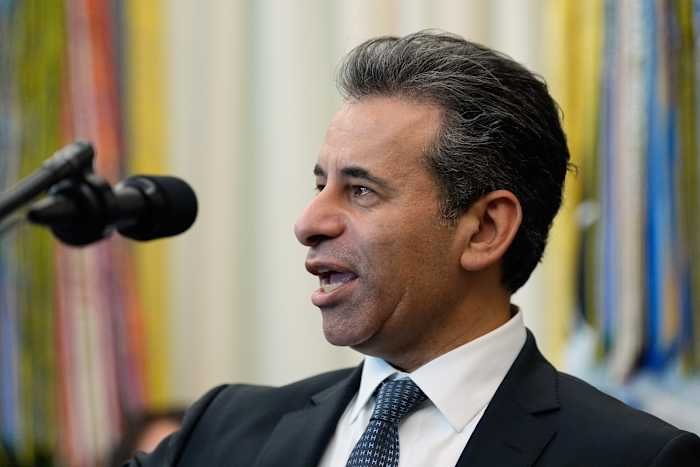Orlando, FL — In a significant move to accelerate access to critical medications, the Food and Drug Administration (FDA) has announced the first list of drugs that will receive expedited reviews as part of its ongoing commitment to national health priorities. This shift promises to reshape the healthcare landscape, not only on a national scale but also here in Orlando, where timely access to new treatments is a pressing concern for many residents and medical providers. In this article, we’ll break down what this means, why it’s happening, and how it could impact our local community.
Understanding the FDA’s Expedited Review Program
The FDA’s new expedited review initiative is designed to identify and fast-track medications considered essential for addressing pressing public health issues—known as ‘national priorities.’ These typically include drugs aimed at treating life-threatening diseases, addressing unmet medical needs, or responding to public health emergencies.
The expedited review process means that eligible drugs will move through the FDA’s rigorous evaluation system much faster than usual. For Orlando patients waiting on breakthrough treatments for diseases such as cancer, rare disorders, or chronic conditions, this could dramatically shorten the time from laboratory to pharmacy shelf.
According to the FDA, the agency will be leveraging additional resources and expert panels to ensure that while speed is increased, safety and efficacy standards remain uncompromised. For providers and patients in Orlando, this means that innovative therapies could become available months—or even years—sooner than under the traditional review timeline.
Which Drugs Are Included in the First Round?
Although the FDA has not yet released the full detailed list to the public, initial reports indicate that the first batch includes drugs for cancer, Alzheimer’s disease, rare genetic conditions, and infectious diseases. These choices reflect the urgent needs of diverse patient populations, including many here in Central Florida.
For instance, Orlando is home to a large aging population, as well as institutions like AdventHealth and Orlando Health that specialize in cancer treatment and research. The expedited review of oncology drugs and those addressing neurodegenerative diseases holds special significance for local families and healthcare professionals.
Local advocacy groups have welcomed the news, emphasizing that bringing novel therapies to market faster could help Orlando’s communities stay at the forefront of medical care and research. “Anything that allows us to get lifesaving treatments into the hands of patients faster is a win for Orlando,” says Dr. Maria Lopez, a local oncologist.
How Will This Affect Orlando’s Healthcare Providers and Patients?
The expedited review process could have several important effects on the Orlando healthcare scene. First, hospitals and clinics may need to adapt quickly to new treatment protocols as drugs are approved on a faster schedule. Continuing education and training for healthcare professionals will be crucial.
Second, patients—especially those with rare or previously untreatable conditions—could gain access to cutting-edge therapies far earlier than before. For families dealing with serious illnesses, this offers renewed hope and potentially better outcomes.
However, the speed of approvals also means that insurance providers and healthcare systems in Orlando will need to act swiftly to update their formularies and coverages. Local public health officials are urging patients to stay informed and consult with their doctors about emerging treatment options.
Challenges and Safeguards: Balancing Speed with Safety
While the promise of faster access is exciting, some health experts caution that speed should not come at the expense of safety. The FDA has assured the public that all expedited drugs will undergo the same rigorous clinical testing and post-approval monitoring as any other medication.
Orlando’s medical community is prepared to play a key role in monitoring outcomes and reporting any adverse effects. Local hospitals often participate in post-market surveillance and contribute data to national safety databases, helping ensure that new drugs are both safe and effective in real-world settings.
Additionally, the FDA is encouraging open communication between healthcare providers, patients, and regulatory agencies. This collaborative approach will be essential as Orlando navigates the changes brought on by this new wave of rapidly approved treatments.
Looking Ahead: What’s Next for Orlando?
As the FDA continues to roll out its expedited review program, Orlando’s healthcare providers, patients, and policymakers will need to stay engaged and informed. The potential arrival of new therapies could put Orlando at the forefront of medical innovation, while also presenting challenges in terms of implementation and education.
Daily Orlando News will continue to monitor updates from the FDA and local health institutions, providing our readers with timely, accurate information on how these changes may affect you and your loved ones.
Have you or someone you know been waiting for a new treatment or medication? What are your hopes or concerns about the FDA’s expedited review process? Leave a comment below to share your thoughts and experiences with the Orlando community!
















